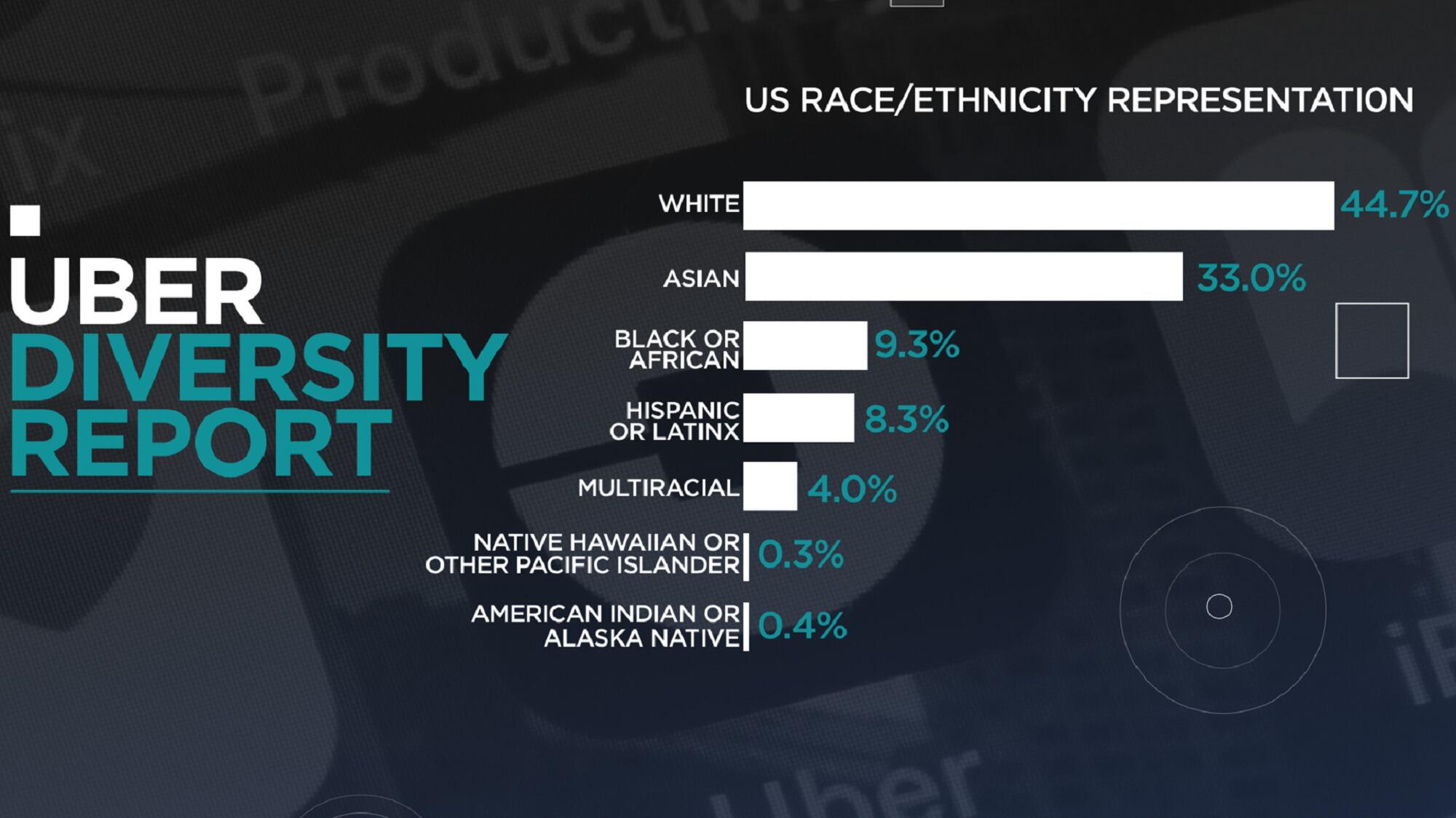For the first time, Uber will tie bonuses for it top executives to diversity goals aimed at increasing female and minority representation within the company, the ride-hailing giant said on Monday.
The policy was announced in Uber's 2019 Diversity Report, which found that while the company is still heavily made up of white and Asian men, it has made progress in creating a more diverse workforce.
The goals tied to bonuses included increasing the percentage of women at Uber's upper levels to 35 percent or above, and the percentage of underrepresented employees at mid-level positions to at least 14 percent by 2022.
"Creating the most diverse and inclusive workplace on the planet won't be possible if we settle for small, incremental changes," Bo Young Lee, Uber's chief diversity and inclusion officer, wrote in the report.
The bonus policy will apply to CEO Dara Khosrowshahi, Chief Legal Officer Tony West, and Chief Financial Officer Nelson Chai, among others. An Uber spokesperson declined to clarify how much of bonuses will be tied to the goals.
"This lack of transparency makes me wonder if this is really just for PR and if they're gaming the system and trying to put out metrics that will work for them and aren't actually going to work for their employees," Ellen Pao, an author and the co-founder of the diversity consulting organization Project Include, told Cheddar.

Uber's diversity report found that the total population of women in the company grew by 42.3 percent in the last year, with an over 7 percent jump in leadership roles. Women now make up just over 40 percent of all employees worldwide.
Also in the past year, the number of African American employees and Hispanic/Latinx employees in the U.S increased by 44.5 percent and nearly 75 percent, respectively, with the most notable growth in technology jobs. Both demographics, however, make up less than 10 percent each of all U.S. employees. Uber ($UBER) remains 44.7 percent white and 33 percent Asian, the report added.
"It is better incrementality, but I think there is so much more they could be doing and they should be doing," Pao said, adding that the bonuses for executives on the tech side of the business should also be tied to diversity.
On Monday, the company also announced news guidelines to support transgender, non-binary, and gender non-conforming employees.
Uber's report comes just a week after Facebook ($FB) released its 2019 diversity report. The social media platform reported that its U.S. employees were 44.2 percent white and 43 percent Asian — less than 7 percent were either black or hispanic. The company is also over 63 percent male and roughly 37 percent female.
"All of these companies still need a lot of help," Pao said. "It is a warning of the early startup CEOs that you need to do all of this work early on in order to prevent getting to the stage were it gets harder and harder."









